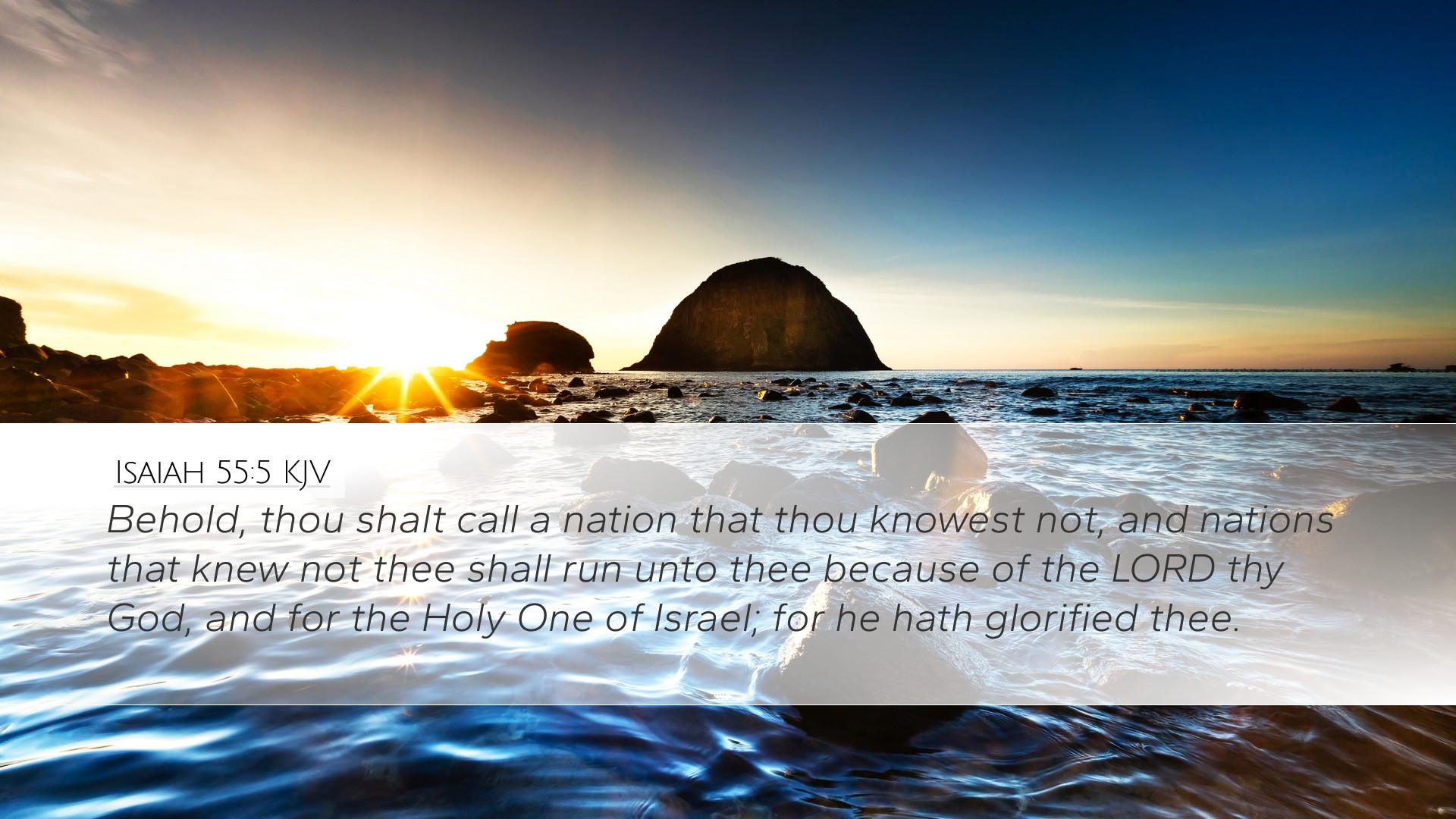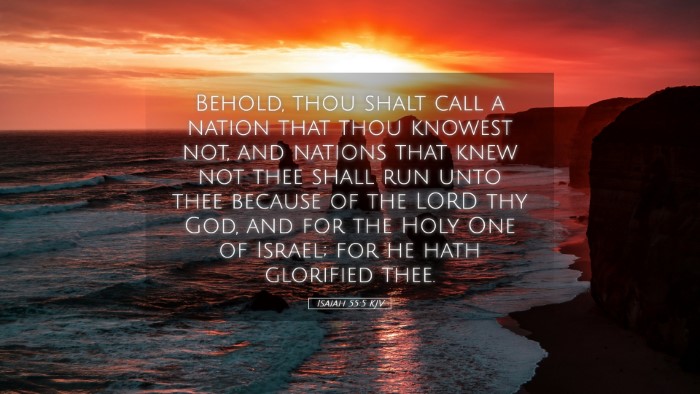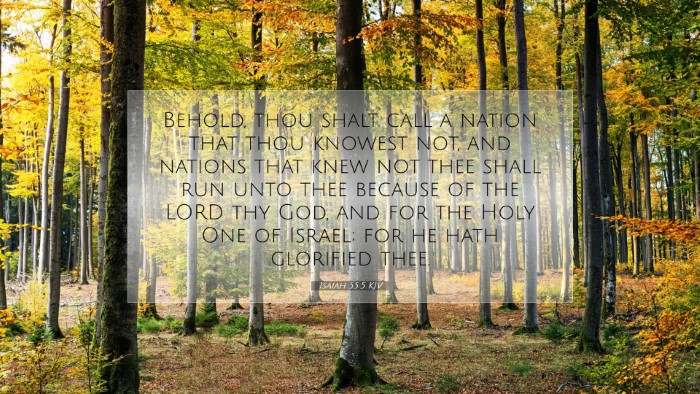Commentary on Isaiah 55:5
Bible Verse: Isaiah 55:5 - "Behold, you shall call a nation you do not know, and nations that did not know you shall run to you, because of the Lord your God, and of the Holy One of Israel; for he has glorified you."
Introduction
The verse from Isaiah 55:5 reflects profound theological insights about God's redemptive plan, the calling of nations, and the glorification of His people. In this commentary, we will explore various perspectives from public domain commentators such as Matthew Henry, Albert Barnes, and Adam Clarke, providing a rich tapestry of understanding that will benefit pastors, students, theologians, and Bible scholars.
The Context of Isaiah 55
Isaiah 55 stands as one of the most inviting chapters in the prophetic literature, calling both Israel and the Gentiles to partake in the salvation offered by God. The broader context concerns the invitation to an abundant life through the Messiah, underscoring themes of grace and divine providence.
Matthew Henry's Insights
Matthew Henry emphasizes the importance of God's invitation to those who thirst for spiritual satisfaction. In his commentary, he notes:
- Divine Call: "Behold" serves as a summons to attention, highlighting that the call is divine and noteworthy. It demands a response from those who hear it.
- Nations Unknown: The phrase "a nation you do not know" indicates the expansion of God's kingdom beyond Israel. It signifies the inclusion of Gentiles who previously were estranged from the covenants of promise.
- God’s Glorification: The latter part of the verse is a declaration of God's glory in how He draws others to His chosen people, reflecting His sovereignty and grace.
Albert Barnes' Perspective
Albert Barnes offers a detailed exploration of the implications of this verse, focusing on the fulfillment of these prophecies. He states:
- Future Fulfillment: Barnes points out that this prophecy finds its culmination in the New Testament, particularly as the apostles carried the message of salvation to the Gentiles.
- God's Power to Attract: He notes that the nations "shall run to you," which implies a sense of urgency and desire, a response to the attraction of God's grace and glory manifested in His people.
- Recognition of the Holy One: The title "Holy One of Israel" reinforces God’s character as distinct and set apart, inviting nations to recognize His holiness and respond to it.
Adam Clarke's Observations
Adam Clarke's exegesis of this verse adds further depth, particularly in his examination of the historical backdrop:
- Historical Context: Clarke emphasizes that Isaiah's audience was facing exile and entrapment, yet the promise of restoration transcends their immediate circumstances, pointing towards a future where God's people would impact the world.
- Mission to the Nations: Clarke interprets the call to the nations as a prophetic vision of the Gospel's reach, a theme central to both the Old and New Testament missions.
- Glory of God: The glorification of God through the growth of His people is a recurring theme in Clarke's writings, illustrating how God’s work through Israel would ultimately lead to greater glory through the redemption of the world.
Theological Implications
Isaiah 55:5 encapsulates vital theological truths that resonate today. The call to the nations emphasizes God’s universal salvation, transcending ethnic and cultural boundaries.
Universal Grace
This verse underscores the idea of universal grace. God’s invitation is not limited to His chosen nation but extended to all humanity. In the light of the New Testament, it foreshadows the great commission given to the church.
The Role of the Church
As the modern covenant community, the church is seen as the fulfillment of this prophecy. The call remains active; the church is called to reach out to those who do not know God, reflecting the love and grace of Christ.
God’s Sovereignty and Human Response
This passage beautifully marries divine sovereignty with human response. While God initiates the call to the nations, individuals must respond in faith. This interplay illustrates the harmony between God’s will and human agency, a theme consistent throughout Scripture.
Conclusion
Isaiah 55:5 invites meditation on God's magnificent plan for redemption that encompasses all nations. It reminds us of our responsibility to be agents of that call, to live a life that reflects God’s glory, and to engage with those who have yet to know the "Holy One of Israel." As we study this verse, let us commit to embodying and proclaiming the abundant grace that God offers to all.


